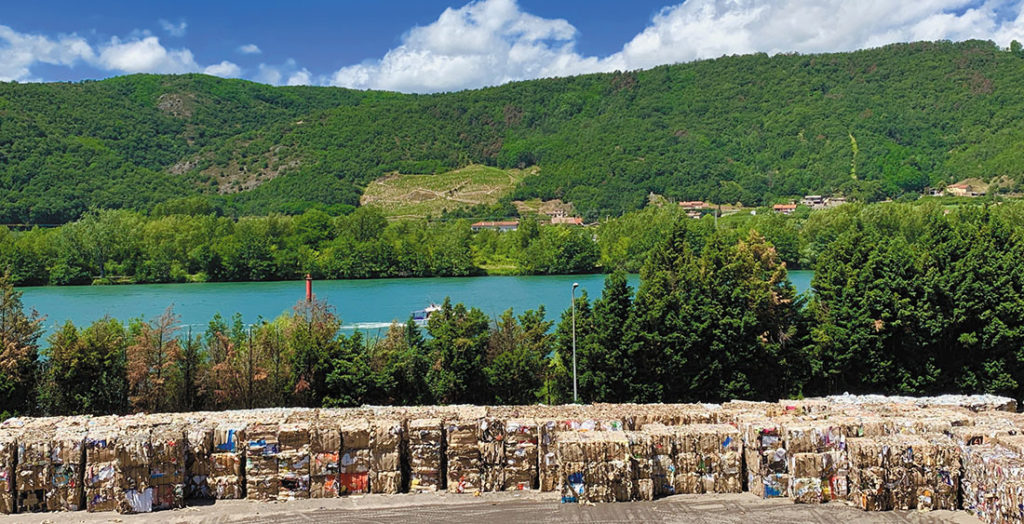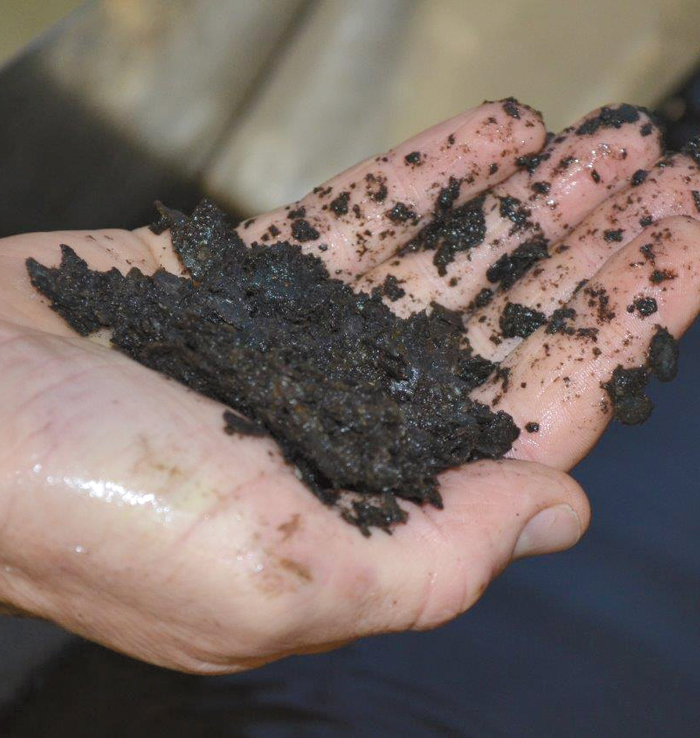The Saica Champblain mill is located along the Rhône River in France, just beside the famous St. Joseph vineyards. They can exist side-by-side because of the mill’s strong sustainability commitment.
Keeping the paper machines clean is a constant issue at Saica Champblain, because its 100 percent recycled furnish is varied. Considering the 1,500 m/min or greater speed of the facility’s paper machines, cleanliness represents an ongoing challenge.
Recently, the mill achieved a forming section breakthrough: mist elimination and fewer showers at the wet end made possible with a Kadant M-clean system. Combined with M-clean units to remove contaminants from dryer fabrics, Saica now enjoys major water and energy savings, as well as an easier way to increase productivity.

According to Pierre Henri Brouty, project engineer and innovations team leader with Saica Champblain, “Removing forward showers from our Bel Baie Sup MAP 60 forming section allows us to sharply reduce habitual mist. With this M-clean unit we use only 7 m3/day of water, compared to 500 m3/day previously used for this task. We start up in 3-4 hours less time. A second unit at the bottom location will enhance our success even more.”
Brouty notes that the mill’s pioneering effort at the forming section is a natural progression from the cleanliness already achieved with M-clean units at the dryer sections of both paper machines, where runnability is up.
Adds Brouty, “Better work conditions and safety are important gains for mill operators and workers. The value of eliminating mist at the wet end cannot be under estimated.”
FORMING CLEANLINESS—
HOW IT HAPPENS
The M-clean unit traverses the forming section, using high-pressure water in combination with a robust evacuation and air knife system. By cleaning on top and through, this opens the pores of the forming fabric. Contaminants and water are then separated in a cyclone.
Ludovic Veyre, applications engineer with Kadant, says “Saica Champblain’s forming section innovation is a major technological breakthrough for the papermaking process. The extraction of contaminants for a fabric width of 8,200 mm, without the traditional fog, is noteworthy. Saving so much fresh water compared with conventional showers on this position matters a lot to them.”
Adds Veyre: “Saica Champblain was bold. This transformation was like changing to an electric car. Add to this the strange fact that understanding the mist allowed operators to know the system was working. Avoiding breaks without fog was not immediately easy.”
DRYING LEADS THE WAY
In fact, M-clean for the dryer section has become a de facto standard at Saica. The Saica Group already uses 43 M-clean units across its mills in Europe, contributing to productivity optimization, increased energy performance, and improved process efficiency.
“M-clean installed at dryer sections has allowed the Saica team to ramp up quality and productivity on a continuous basis,” says Robin Moritz, sales director for Kadant Nordic. “Because they are running so clean, they had the confidence to try this approach at the forming section.

“Forming fabrics are more sensitive than dryer fabrics, so this required numerous pre-testing trials in Sweden on our trial machine. This effort allowed for a plug-and-play installation at Saica Champblain.”
Over the past several years, Saica Champblain has systematically improved dryer section performance through better control of stickies, gaining uniformity with sheet properties while saving energy. Installation of M-clean units has played an important role in high cleaning efficiency, resulting in in better energy performance of the mill’s MAP 50 – MAP 60 machines.
Extracting stickies out of the MAP improves the surface condition of the sheet. To achieve the highest performance it’s essential to get the angles of the nozzles just right. Ongoing removal of contaminants increases the life of sheet rolls.
M-clean dramatically reduces degradation of the moisture profile, so fabric performance delivers higher production. Longer life of the fabrics also saves maintenance time and money; the lifespan of the drying fabrics increased from 13 weeks to 27 weeks.
What’s next at Saica Champblain? “Pioneering is our way of being. We like the challenges from innovation, especially when we make sustainability and productivity gains. And it’s fun,” concludes Brouty.
 Paper 360
Paper 360